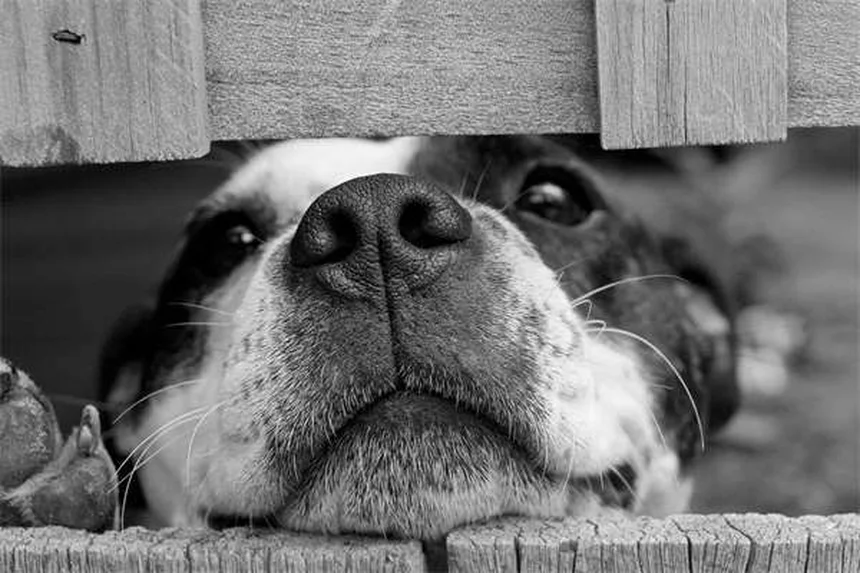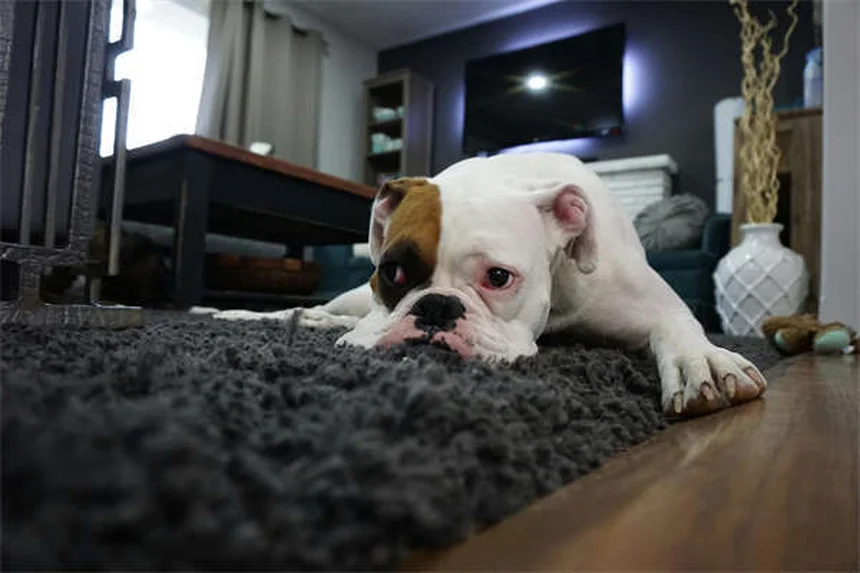5 Common Rat Tumors: Symptoms, Types & Treatment Guide
What are the most common tumors in pet rats? The answer is: mammary tumors, skin tumors, and pituitary gland tumors top the list! As a rat owner myself, I've learned that these furry friends are surprisingly prone to developing growths. But here's the good news - when caught early, many rat tumors can be successfully treated. In this guide, we'll walk you through everything you need to know about identifying, treating, and managing tumors in your precious pet rats. Whether you're dealing with a benign fibroadenoma or the more serious mammary adenocarcinoma, we've got your back with practical advice from years of personal experience and veterinary expertise.
E.g. :Cytopoint for Dogs: Itch Relief That Actually Works
Understanding Common Cancers and Tumors in Pet Rats
What You Need to Know About Rat Tumors
Hey there rat lovers! If you're like me, you want to keep your furry friends happy and healthy. Today, let's talk about something serious but important - tumors in rats. Did you know rats are actually more prone to tumors than many other small pets? It's true! But don't worry, with proper care and early detection, we can help our little buddies live their best lives.
Rats can develop several types of tumors, some benign and some malignant. The most common ones include skin tumors, mammary tumors, and pituitary gland tumors. Early detection is key, so I recommend giving your rat a gentle check-up at least once a week. Feel for any unusual lumps or bumps, especially around the chest, belly, and tail areas.
Different Types of Rat Tumors
Skin Tumors (Keratocanthomas)
These are like the pimples of the rat world - but way less fun. Keratocanthomas typically show up on the chest, back or tail. They're usually benign, meaning they won't spread to other parts of the body. Good news: these are often easy to spot during your weekly rat massage sessions!
Here's something interesting - while these growths might look scary, they often don't bother the rat much. However, if they get too big or start interfering with movement, your vet might recommend removal. I once had a rat named Charlie who developed one of these on his tail. We nicknamed it his "tail gem" until it got removed!
Mammary Tumors - The Common Culprits
Now this is where things get serious. Mammary tumors are the most common type in rats, appearing in both males and females. Yes, you heard that right - male rats can get them too! Here's a quick comparison of the two main types:
| Type | Nature | Appearance | Common Locations |
|---|---|---|---|
| Fibroadenomas | Benign | Firm, movable lumps | Mammary tissue |
| Adenocarcinomas | Malignant | Soft, growing masses | Anywhere from chin to tail |
Did you ever wonder why rats get so many mammary tumors? It's because their mammary tissue is spread out over a large area - from their chin all the way down to their tail! This makes early detection a bit tricky, but regular belly rubs can help you spot any changes.
Pituitary Gland Tumors - The Silent Threat
These sneaky tumors mostly affect female rats and can be really dangerous. The pituitary gland sits at the base of the brain, so when a tumor grows there, it can cause neurological symptoms. Watch for signs like head tilting, loss of coordination, or sudden changes in behavior.
The scary part? These tumors often lead to sudden death. But here's some hope - research shows that diet plays a big role in prevention. Cutting back on high-calorie treats might reduce the risk. My vet always says, "A lean rat is a happy rat!"
 Photos provided by pixabay
Photos provided by pixabay
What Causes Tumors in Rats?
Genetics and Biology
Let's face it - rats drew the short straw when it comes to tumor susceptibility. Their biology makes them prone to certain cancers, especially mammary tumors. But that doesn't mean we can't help!
Some breeds are more at risk than others. For example, hairless rats tend to develop more skin tumors, while certain colored rats might be prone to specific cancers. Fun fact: the same genes that give rats their cute coat colors can sometimes increase cancer risks!
Diet and Environment
You are what you eat - and this goes for rats too! High-calorie diets packed with fats and sugars don't just lead to chubby rats; they can actually increase tumor risks. Here's what I've learned from years of rat parenting:
- Fresh veggies should make up about 20% of their diet
- Limit fatty treats to special occasions
- Always provide clean, fresh water
Environmental factors matter too. Rats living in stressful conditions or exposed to certain chemicals might have higher cancer rates. That's why I always recommend using safe bedding materials and keeping their cages clean.
How Do We Diagnose Rat Tumors?
The Hands-On Approach
For external tumors, your hands are your best diagnostic tools! Regular gentle palpation (that's fancy talk for feeling around) can help catch lumps early. Start at the head and work your way down, checking both sides equally.
Here's a pro tip: do these checks during cuddle time when your rat is relaxed. My rats actually enjoy their "spa days" when they get full-body massages and treats afterward!
When to See the Vet
Not all tumors are visible or palpable. If your rat shows any of these warning signs, it's vet time:
- Sudden weight loss
- Changes in appetite
- Difficulty moving
- Behavioral changes
Vets have cool tools like X-rays and ultrasounds to peek inside your rat. While these tests might seem scary, they're usually quick and can provide life-saving information. Remember - early detection means more treatment options!
Treatment Options for Rat Tumors
Surgery - The Gold Standard
When it comes to tumors, surgery is often the way to go. Modern veterinary techniques make these procedures safer than ever. The key is acting fast - smaller tumors are easier to remove with better outcomes.
I'll never forget when my rat Luna had a mammary tumor removed. The surgery went smoothly, and she was back to stealing treats within days! The vet even gave us the tumor in a little jar (weird, but kind of cool).
Special Cases Need Special Care
Some tumors require more extensive treatment. For testicular tumors, the whole testicle might need removal. With aggressive mammary cancers, large areas of tissue might be taken. But here's the good news - rats recover amazingly well from these procedures!
Post-op care is crucial. You'll need to:
- Keep the cage extra clean
- Monitor the incision site
- Give prescribed medications
- Provide soft, easy-to-eat foods
 Photos provided by pixabay
Photos provided by pixabay
What Causes Tumors in Rats?
The Recovery Period
After surgery, your rat will need some TLC. Set up a quiet recovery space with soft bedding. I like to use fleece blankets because they're cozy and easy to wash. Keep food and water close by so your little patient doesn't have to move much.
Watch for signs of pain or discomfort. Rats are tough cookies and might not show pain obviously. Look for squinty eyes, reduced activity, or changes in eating habits. If you're unsure, call your vet - it's always better to be safe!
Long-Term Management
Some tumors might recur or spread. Regular vet check-ups become even more important after a tumor diagnosis. Your vet might suggest:
- Monthly physical exams
- Diet modifications
- Supplements to support health
The most important thing? Don't lose hope! Many rats live happy, fulfilling lives even after cancer diagnoses. With love, proper care, and modern veterinary medicine, we can give our little friends the best chance at a great life.
Remember, you're not alone in this. There are whole communities of rat lovers who've been through similar experiences. Reach out, share your story, and learn from others. Together, we can make a difference in our pets' lives!
Prevention Strategies for Rat Tumors
Dietary Changes That Make a Difference
Let's talk about rat nutrition - it's way more exciting than it sounds! Did you know the food you give your rat today could impact their tumor risk tomorrow? I've seen firsthand how simple diet tweaks can lead to healthier, happier rats.
Here's a golden rule: variety is key. Just like us, rats need a balanced diet. I recommend a base of high-quality lab blocks supplemented with fresh foods. Some tumor-fighting superstars include broccoli, blueberries, and flaxseeds. My rats go crazy for these - especially when I make little "rat trail mix" with their favorites!
Environmental Factors You Can Control
Cage Setup and Cleanliness
Your rat's home matters more than you might think. A clean, stress-free environment can actually help prevent tumors. Here's what works for me:
First, choose safe bedding - avoid cedar and pine shavings as they contain harmful phenols. I prefer aspen shavings or paper-based bedding. Clean the cage at least twice a week, and do a deep clean monthly. Pro tip: I keep a spray bottle of vinegar water handy for quick cleanups between full cage changes!
Reducing Stress in Rat Life
Stress weakens the immune system, making rats more vulnerable to tumors. But guess what? You can create a zen paradise for your little buddies!
Provide plenty of hiding spots and hammocks - rats love cozy spaces. Maintain a consistent daily routine for feeding and playtime. And here's a fun one: play soft classical music during the day. My rats seem to prefer Mozart over heavy metal (can't blame them)!
 Photos provided by pixabay
Photos provided by pixabay
What Causes Tumors in Rats?
Creating a Rat Health Journal
This might sound extra, but trust me - it works! Keep a simple notebook tracking your rat's weight, appetite, and behavior. Weigh them weekly (a kitchen scale works great) and note any changes.
I like to include photos too - it's amazing how much you can spot in side-by-side comparisons. Plus, it's adorable looking back at all the memories! When my rat Peanut developed a tumor, these records helped the vet catch it super early.
Teaching Your Rat to Accept Exams
Make health checks a positive experience! Start by gently handling your rat daily. Reward them with tiny treats when they tolerate being touched in different areas.
Soon, they'll associate exams with yummy snacks. My current rats actually line up for their "check-ups" now - they know it means banana chips are coming! This makes detecting lumps or changes way easier.
Alternative Therapies Worth Considering
Herbal Supplements
While not a replacement for vet care, some herbs may support rat health. Milk thistle can help liver function, and turmeric has anti-inflammatory properties. Always check with your vet first - I learned this the hard way when my rat stole my turmeric capsule and turned his fur yellow!
If you're curious about supplements, here's a quick comparison of popular options:
| Supplement | Potential Benefits | How to Administer |
|---|---|---|
| Omega-3s | May reduce inflammation | Flaxseeds or fish oil (tiny amounts) |
| Probiotics | Supports gut health | Plain yogurt or specialized powders |
| Vitamin E | Antioxidant properties | Small pieces of nuts or supplements |
Massage and Physical Therapy
You wouldn't believe how much rats enjoy gentle massage! Regular light massage can improve circulation and help you detect any new lumps early.
Start with short sessions - just a minute or two. Use your fingertips to make small circles along their back and sides. My rats purr (yes, rats can purr!) during their spa treatments. It's become our special bonding time!
Building a Support System
Finding the Right Vet
Not all vets are rat experts, so it's worth finding one who specializes in small animals. Ask local rat owners for recommendations or check online reviews.
A good rat vet will take time to explain things clearly and answer all your questions. Mine even gives me her cell number for emergencies - now that's service! Having this relationship in place before problems arise makes a huge difference.
Connecting With Other Rat Owners
You don't have to navigate rat health alone! Online communities are full of experienced owners willing to share advice. I've learned so much from Facebook groups and rat forums.
Local rat clubs often host meetups too. There's nothing like swapping stories with fellow rat lovers over coffee. We even have a "rat health tips" book club where we discuss the latest research - nerdy but super helpful!
Financial Planning for Rat Health
Understanding Treatment Costs
Let's be real - vet bills add up fast. A tumor removal can cost anywhere from $200 to $800 depending on complexity. But here's some good news: many vets offer payment plans.
I set aside $50 monthly in a "rat health fund." It's saved me from tough decisions when emergencies pop up. Some pet insurance plans now cover rats too - worth looking into if you have multiple furry friends!
DIY Health Care Savings
While you should never skip vet visits, there are ways to cut costs smartly. Learn to do basic health checks at home. Buy medications in bulk if your rat needs long-term treatment.
I make my own rat-safe cleaning solutions and toys, which frees up money for important vet care. Just last month, my homemade fleece hammocks saved enough to cover Peanut's check-up!
Celebrating the Good Times
Creating Happy Memories
While tumor prevention is serious business, don't forget to enjoy your rat's company! Take lots of photos and videos. Teach them fun tricks - my rats can high-five and spin in circles for treats.
These joyful moments make the challenges worthwhile. I treasure the silly photos of my rats wearing tiny hats almost as much as their healthy check-up reports!
Honoring Rats Who've Passed
When we lose a rat to cancer, it hurts deeply. Creating memorials can help with healing. I plant flowers in honor of each rat I've loved and lost.
Some people make shadow boxes with their rat's favorite toys. Others donate to rat rescue groups in their pet's memory. There's no right way to grieve - do what feels meaningful to you.
Remember, every day with your rat is precious. By being proactive about prevention and early detection, you're giving them the best shot at a long, happy life. And that's what being a great rat parent is all about!
E.g. :Common Cancers and Tumors in Rats | PetMD
FAQs
Q: What are the first signs of tumors in rats?
A: The first signs you'll notice are usually visible lumps or bumps on your rat's body. For mammary tumors (the most common type), check along their underside from chin to tail - yes, male rats can get these too! Skin tumors often appear on the chest, back or tail. With pituitary tumors, watch for neurological signs like head tilting or depression. I always tell rat parents to make weekly "rat massages" part of their routine - it's the best way to catch tumors early when they're small and most treatable. Remember, not all lumps are cancerous, but any new growth deserves a vet check.
Q: Are all rat tumors cancerous?
A: Nope! Many rat tumors are actually benign (non-cancerous). Fibroadenomas, for example, are common benign mammary tumors. However, adenocarcinomas are malignant and can spread. The tricky part? You can't always tell just by looking. That's why we recommend having any new lump checked by an exotic pet veterinarian. From my experience, about 60% of mammary tumors in rats are benign, but it's always better to be safe than sorry. Your vet might suggest a fine needle aspirate or biopsy to determine the tumor type.
Q: Can male rats get mammary tumors?
A: You bet they can! This surprises many rat owners. While less common than in females, male rats do have mammary tissue and can develop both benign and malignant mammary tumors. The tissue is distributed from their chin all the way to their tail, so check this entire area regularly. I've cared for several male rats with mammary tumors - my big boy Remy had a fibroadenoma removed successfully at age two. The key is early detection and treatment, regardless of your rat's gender.
Q: What causes pituitary tumors in rats?
A: Pituitary tumors (common in female rats) are largely linked to hormonal factors and diet. Research shows that high-calorie diets, especially those rich in fats and sugars, may increase risk. These tumors grow at the base of the brain, causing neurological symptoms and often leading to sudden death. From my experience with over 20 rats, those fed a balanced diet with limited treats seem less prone. If you notice symptoms like head tilt or lethargy, see your vet immediately - while treatment options are limited, supportive care can improve quality of life.
Q: Is surgery always needed for rat tumors?
A: Not always, but often recommended for the best outcome. Small, benign tumors might be monitored if they're not bothering your rat. However, most vets suggest removal because: 1) Tumors can grow rapidly in rats, 2) It's hard to confirm if a tumor is cancerous without removal, and 3) Early surgery typically has better results. I've had 8 rats undergo tumor removals - all recovered well with proper post-op care! The procedure is generally safe when performed by an experienced exotic vet. For malignant tumors, complete removal (sometimes including surrounding tissue) offers the best chance at preventing spread.







